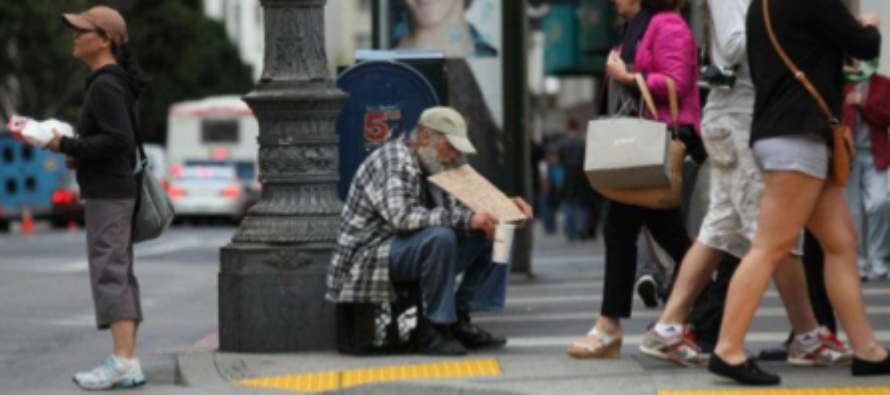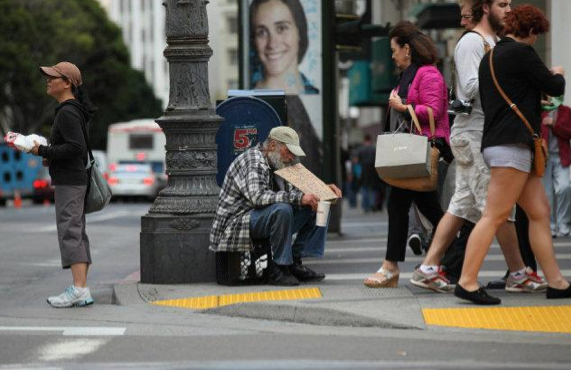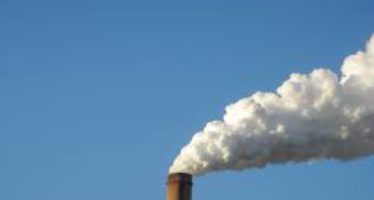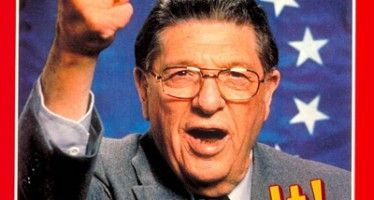San Francisco inequality breeds political unease

 As San Francisco’s sharp inequality draws national attention this election year, California Democrats have begun to question how to explain their role in fostering — and reversing — the trend.
As San Francisco’s sharp inequality draws national attention this election year, California Democrats have begun to question how to explain their role in fostering — and reversing — the trend.
The gulf between the progressive city’s richest and poorest, and the emptying space between the two, has come to haunt Democrats worried that their almost unfettered control over state and municipal politics has left promises unfulfilled and little plan for change in the future. “During all my years in Asia I constantly grappled with the perniciousness of poverty,” Thomas Fuller wrote in a dispatch for the New York Times Sunday Review. “Yet somehow I was unprepared for the scale and severity of homelessness in San Francisco. The juxtaposition of the silent whir of sleek Tesla electric vehicles, with the outbursts of the mentally ill on the sidewalks. Destitution clashing with high technology. Well-dressed tourists sharing the pavement with vaguely human forms inside cardboard boxes. I’m confounded how to explain to my two children why a wealthy society allows its most vulnerable citizens to languish on the streets.”
A city in the hot seat
Liberals have recently raised the alarm about inequality in other elite blue-state cities. “Boston is the headquarters for two industries that are steadily bankrupting middle America: big learning and big medicine, both of them imposing costs that everyone else is basically required to pay and which increase at a far more rapid pace than wages or inflation,” as Thomas Frank recently observed. “A thousand dollars a pill, 30 grand a semester: the debts that are gradually choking the life out of people where you live are what has made this city so very rich. Perhaps it makes sense, then, that another category in which Massachusetts ranks highly is inequality.”
But with California’s rising generation of leaders drawn so heavily from San Francisco elites like Gavin Newsom and Kamala Harris, the leading candidates for governor and U.S. senator respectively, critics have suggested that the city’s dominant political ethos is even more determinative of the near future than its prevailing technological worldview. “San Francisco and the Bay Area have long been committed to values which embrace inclusivity and counterculture. To see these values fraying so publicly adds insult to injury for a region once defined by its progressive social fabric,” Frederick Quo suggested this summer at Quartz, warning “San Francisco has become one huge metaphor for economic inequality” across the country. “In the face of resentment it is human to want revenge,” he warned. “But regressive policies such as heavily taxing technology companies or real estate developers are unlikely to shift the balance.”
West coast anxieties
The sense that San Francisco has painted itself into a kind of policy corner has played into growing perceptions among Golden Staters that residents are facing a painful, threatening squeeze, despite the state’s significant aggregate economic turnaround from the bad old days of the financial crisis when Sacramento issued IOUs. In a recent CALSPEAKS poll, “seven out of 10 respondents believe the number of people living in poverty is a “major” problem,” KQED News reported. “There was wide agreement, regardless of race, political affiliation, income level or age. Two-thirds of Californians also believe income inequality is a major problem. (The cost of health care was another top concern, considered a problem by 70 percent of respondents.)”
For a time, it appeared that Democrats were turning the corner on inequality anxieties by focusing on raising minimum wages nationwide, starting with big cities — an approach that courted big controversy in California but ultimately largely succeeded. “In the last few years, as concerns have grown about economic inequality, proposals for a higher minimum wage have enjoyed remarkable success, thanks in part to an energetic campaign for a $15 minimum wage led by fast-food workers and backed by organized labor,” NBC News recalled. “New York, California and Washington, D.C., have all passed laws to raise their minimum to $15 an hour within the next eight years.” But as KQED noted, in the new CALSPEAKS survey, just “one-third of those polled ‘strongly favor’ the state’s recent $15/hour minimum wage bump approved,” while only 26 percent “somewhat” favored it — a majority, but one still uncertain about the best way to right what they see as the state’s stubborn economic wrongs.
Related Articles
California high court says public records are public, even on a private email
SACRAMENTO – Earlier this month, the California Supreme Court unanimously overturned an appeals court decision that had provided a large loophole
Survey: Californians support state’s environmental laws, could do more
Californians think the state could do more and spend more to clean up the environment, according to a new poll.
Grizzly Bear Project seeks property tax increases
There could be a property tax increase in your future — if the Grizzly Bear Project gets its way. Project




